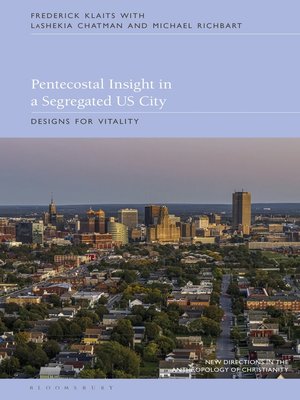Pentecostal Insight in a Segregated US City
ebook ∣ Designs for Vitality · New Directions in the Anthropology of Christianity
By Frederick Klaits

Sign up to save your library
With an OverDrive account, you can save your favorite libraries for at-a-glance information about availability. Find out more about OverDrive accounts.
Find this title in Libby, the library reading app by OverDrive.



Search for a digital library with this title
Title found at these libraries:
| Library Name | Distance |
|---|---|
| Loading... |
In Pentecostal Insight in a Segregated U.S. City, Frederick Klaits compares how members of one majority white and two African American churches in Buffalo, New York receive knowledge from God about their own and others' life circumstances.
In the Pentecostal Christian faith, believers say that they acquire divinely inspired insights by developing a "relationship with God." But what makes these insights appear necessary? This book offers a novel approach to this question, arguing that the inspirations believers receive from God lead them to take critical stances on what they regard as ordinary understandings of space, time, care, and personal value. Using a shared Pentecostal language, believers occupying different positions within racial, class, and gender formations reflect in divergent ways on God's designs. In the process, they engage critically with late liberal imaginaries of eventfulness and vitality to envision possibilities of life in a highly unequal society.
This text incorporates commentaries on Klaits' ethnography by LaShekia Chatman and Michael Richbart, junior scholars who have also studied and been part of Pentecostal communities in Buffalo.
In the Pentecostal Christian faith, believers say that they acquire divinely inspired insights by developing a "relationship with God." But what makes these insights appear necessary? This book offers a novel approach to this question, arguing that the inspirations believers receive from God lead them to take critical stances on what they regard as ordinary understandings of space, time, care, and personal value. Using a shared Pentecostal language, believers occupying different positions within racial, class, and gender formations reflect in divergent ways on God's designs. In the process, they engage critically with late liberal imaginaries of eventfulness and vitality to envision possibilities of life in a highly unequal society.
This text incorporates commentaries on Klaits' ethnography by LaShekia Chatman and Michael Richbart, junior scholars who have also studied and been part of Pentecostal communities in Buffalo.







